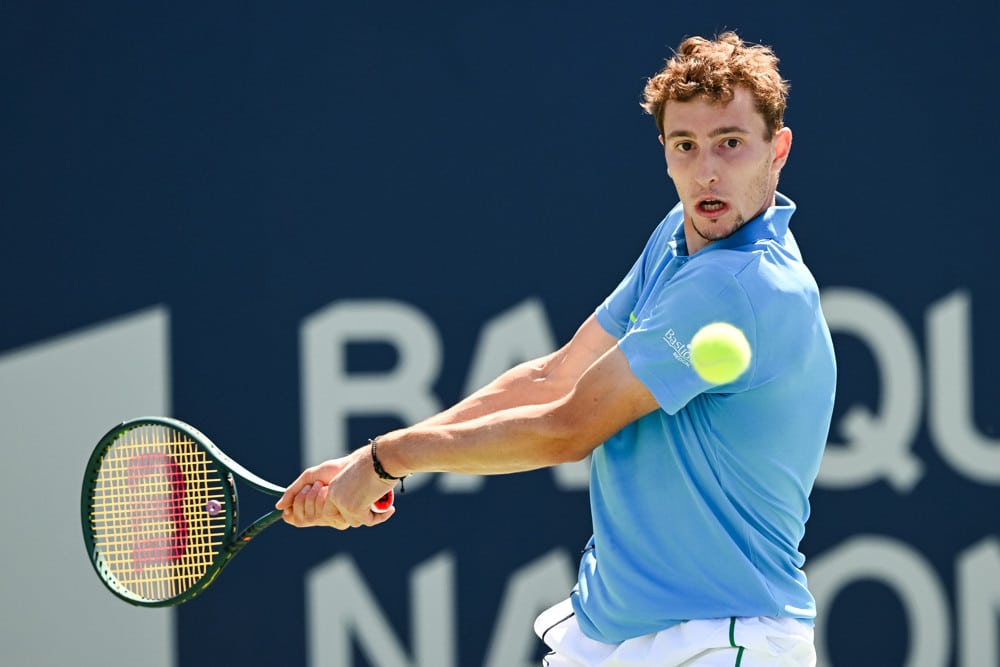Good Info On Choosing Daily Predictions For Tennis
Wiki Article
10 Tips For Head-To-Head Records When Making Tennis Predictions
To help you make informed choices Here are 10 suggestions: Surface Context: A player's performance against another player can be wildly different according to the surface. Here are ten suggestions to assist you in making more informed decisions:Surface Context: A player's success against another may be different depending on the surface. To get a precise comparison, check the H2H results from games played on the same surface as the upcoming game.
The most recent matches may be more relevant than H2H records. Focus on recent matches because fitness, form and strategies of players shift in time.
The Importance of a Match - Take into account the significance of the match(es) in the H2H time line. Grand Slams or wins in finals might be more important than lower-tier victories.
Scoreline analysis is more than simply determining who was the winner or losers. Examine the intensity of the games. Did one player take the victory in straight sets, or was it closely fought, with many tiebreaks and tight competition?
Certain styles of play can create problems for certain players. For instance, a skilled returning player might have difficulty to keep up with a larger server. Based on past experiences, analyze how the two styles are compared.
Fitness and Injury During Past Matches: Determine which player suffered from an injury or was not fit enough during previous H2H matches. It could distort the results and make them look less impressive when they're 100% fit.
Surface and conditions of previous matches: Sometimes, the H2H record might be a mix of matches played in vastly different conditions--indoors vs. outdoors, altitude or different weather. Compare the conditions to those of the game.
Tournament Stage: Players might perform differently based on the level of the tournament. The H2H information to determine if earlier matches were played in early rounds or high pressure scenarios, such as semifinals or finals.
Mental Edge and Rivalry: A player who consistently loses against a similar opponent might be a psychological barrier that provides their opponent with a psychological edge. Rivals bring out the best and worst in players.
Home Advantage and Crowd Influence Consider whether the previous games were played in the country of the player, or in front supportive crowds. The advantage of home is often an element, especially in close rivalries.
The history of the H2H will give you a better knowledge of the game and how it could play out. This will help you to make better tennis predictions. Follow the top Tennis Rumours & News for more advice including tennis picks today, best tennis bets today, us open men odds, matches today and predictions, betting tips, todays win, prediction sure win today, betting picks, tennis set betting, tennis betting and more.

Ten Tips To Aid You In Making Better Tennis Predictions By Considering Psychological Aspects
When analyzing these factors to formulate predictions, here are ten tips you should consider: Confidence Levels: Assess the player's confidence in light of the recent achievements and performances. Here are ten tips to consider when analyzing these factors for making predictions:Confidence Levels: Assess the player's confidence based on their recent performances and achievements. A player coming off of an impressive win or streak may feel more confident, whereas those who are losing could have a difficult time being confident in his abilities.
Mental Toughness is important Check out how the player copes with pressure, especially in crucial moments like tiebreaks and breakpoints. People who have a strong mental capacity often perform better in stressful situations.
Previous encounters: Look at the performances of players against each other over time. Mental factors such as the presence of a "mental block" against a specific opponent could affect performance.
Handling Adversity: Consider how players handle setbacks during a match, such as losing one set or getting behind. Players with the most effective problem-solving and concentration abilities are more likely to win matches.
Motivation and goals: Determine a players motivation by taking a look at their current goals. If a player wants to reach a new level in their career or to win an important title could be more focused and motivated.
Analysis of how players cope with pressure, whether it comes from the media, their supporters or even their own personal goals. Players with high standards may take on the challenge or succumb to the pressure of their expectations.
Emotional stability: Swings in emotions can affect performance. The players who manage their emotions effectively tend to remain steady throughout a game and those who are prone to frustration or anger may lose concentration.
Injury Impact: Consider the psychological impact. A player recovering form an injury can be cautious or unsure, affecting their performance. In contrast, a healed athlete may be more determined.
Recent Changes: Examine how recent changes such as changes in the coach or a significant life event might impact the mental state of a player. Positive changes can improve performance however negative changes could have the opposite effect.
Crowd Influence Think about how players respond to crowds who are hostile or supportive. Certain players can enjoy having a crowd at home backing them, while others may be overwhelmed or disengaged.
It is possible to make more precise and informed predictions by incorporating psychological aspects into your analysis. Take a look at the top rated WTA Tennis Predictions News for website advice including tennis betting line, to day prediction, experts tips, ai betting predictions, us open mens final odds, best betting picks today, best prediction, betting picks, tennis odds, tips for betting today and more.

10 Tips About Match Location When Preparing Tennis Predictions
Ten tips for analyzing the location of matches in order to determine your predictions. Here are ten things to consider when looking at the match's location to determine the best possible outcome. Consider whether the player's performance at the venue is affected by the crowd and their previous record.
Different tournaments could have different surfaces, like clay courts or hard courts. The surface that a player is most comfortable with could be the best for their best performance. Check the surface type at the location and evaluate it against the strengths and weaknesses of each player.
Climate and Weather Local weather conditions like humidity, temperature, and speed, may influence the game. Assess the performance of players under similar conditions.
Altitude: Those who play in locations with high altitude (such as the tournaments that take place in Mexico City and Bogota), can cause the ball to bounce faster and bounce more. The players who are used to these conditions and who have performed well under similar circumstances could have an edge.
Indoor vs. Outdoor courts: Indoor courts can be free of the weather elements, whereas outdoor courts are subject to wind, sun, and other elements. Compare the performance of each player in an outdoor and indoor setting.
Travel Fatigue - Take into consideration the distance traveled by each participant. Long travel can cause fatigue and can affect performance. This is particularly true during the first round.
The atmosphere of the venue The atmosphere of the venue can affect players by the mood and size. While large, noisy venues can intimidate smaller, intimate venues might feel more cosy.
Event Importance: The importance of the tournament is to an event's location can affect the performance. The players are more enthusiastic in high stakes tournaments like Grand Slams.
Surface Condition even within the same type of surface the conditions may differ. Clay courts, for example can play differently based on the weather or the level of maintenance they have.
The past and records. Certain people have a history advantage, whether it is because of their individual success or simply due to their familiarity with the place. You can gauge the potential result by looking through performances from the past.
When you carefully consider the elements that affect the match location it is possible to get a better understanding of the way the environment might affect the performance of players and enhance the precision of your prediction.